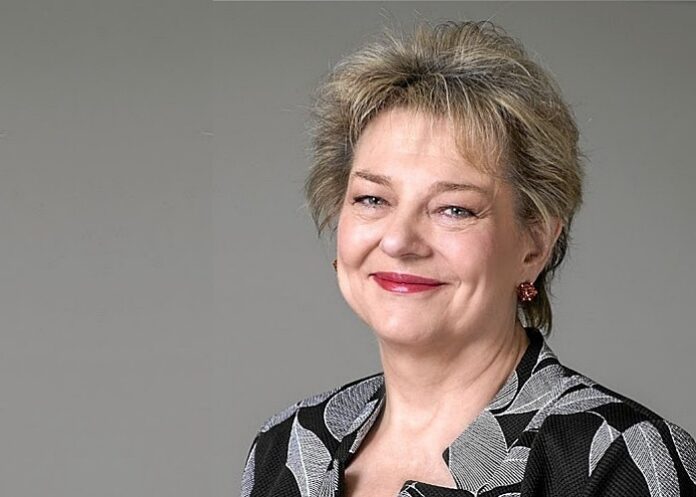The fall-out from comments on CapeTalk by former SA Medical Association chair Dr Angelique Coetzee about medical school entrance requirements has confounded many, writes the Institute of Race Relations’ Michael Morris, in a column.
As reported in MedicalBrief last week, Coetzee, at first apologised for her remarks and then suddenly resigned after the debacle, having clearly lost the support of the SAMA board.
The SAMA board had issued a statement saying that after “considerable deliberation” it had accepted chairperson Dr Angelique Coetzee’s apology for “hurt” caused by her remarks over medical schools admission policies ton a radio talk show, “During the interview, Dr Coetzee expressed personal opinions that the admission processes to medical schools were highly politicised, that race played a significant role in determining acceptance to medical faculties, in many instances more than the applicant's matric performance and that different criteria exist for different race groups with regard to admission requirements.”
After stepping down from her position as the chairperson, Coetzee was then barred from speaking to the media, pending a disciplinary hearing.
The current vice-chairperson of the SAMA board, Dr Mvuyisi Mzukwa, will assume the role of interim chairperson “while the board contemplates Coetzeeʼs permanent replacement”, according to a notice sent to members of the association.
Morris, who is is head of media at the IRR, suggests that SAMA should explain just why Coetzee’s remarks were so “regrettable and incorrect”, and why her not implausible answers to a reasonable question caused such “pain and rage”. And why the organisation has not elaborated on its interpretation of those very same entrance requirements.
He writes:
I often think back to a wry observation by former Robben Islander Saki Macozoma during pre-interview small talk a few months after his appointment as head of Transnet in the 1990s.
He was surrounded, he said, by young, inexperienced black managers who thought his job would be theirs if only they were white; and young, inexperienced white managers who thought his job would be theirs if only they were black.
Strikingly, Macozoma empathised with both sides; he could see what they were getting at, even as he sought to dismantle their delusions.
I wonder, these two decades later, whether an executive would risk sharing any such casual insight without having to worry about its being judged outrageous or “hurtful”, requiring an apology at least, and perhaps even their resignation.
It does seem that we are increasingly incapable of having a conversation about anything to do with race. (And we are not alone — readers may recall that my last column dealt with Whoopi Goldbergʼs travails after having raised not insignificant questions about race and the Holocaust.)
In the very week of the grim, racially charged conflict at Hoërskool Jan Viljoen in Randfontein, it ought to be troubling that the more polite end of society is willing to smother the topic (what meaning we assign to race) in obfuscation and euphemism.
I am referring here to the unnerving events at the SA Medical Association (SAMA) after the comments of its now ex-chair, Angelique Coetzee, on admission to medical schools in a CapeTalk radio interview in January.
Coetzee reportedly said race played a role in determining admission to medical schools, was sometimes more important than the applicantʼs matric performance, and that there were different admission criteria for different race groups. This was prompted by a CapeTalk listener calling in to ask why his son, who had achieved a straight-A matric, could not get into medical school.
Given the emphasis on race in every field nowadays (with the exception of non-racial SA Social Security Agency grants), Coetzeeʼs comments seem, frankly, neither implausible nor indelicate. If she was wrong, that can surely be explained.
Key passage
But SAMAʼs response suggests “transformation” canʼt really be spoken about with any candour; it empathised with “the pain and rage” caused by her “regrettable remarks”, which it said did “not represent the ethos of the association and the democratic principles it stands for”, and were “incorrect”.
But do we know why? Did SAMA explain, or undertake to get an explanation?
The key passage in SAMAʼs statement reads: “The board acknowledges that Coetzee’s interpretation of the admission requirements is incorrect, and that entrance processes for medical students are much more complex and thorough than what was stated in her opinion.
“The board is fully cognisant of the fact that the stringent entry requirements are meant to ensure the provision of only the highest quality medical professionals for the country. SAMA further acknowledges that entrance to medical schools requires a high level of academic achievement across the board, and that all candidates selected for entry into medical school are chosen inter alia on merit and ability.”
Perhaps SAMA doesnʼt know the answer, but when an opportunity arises to address pressing issues head on, can it be enough for a professional body of this kind to fudge it with protestations that entrance processes are “much more complex and thorough”, and that candidates are selected “inter alia on merit and ability”?
South Africans are mature enough for an adult conversation about the kind of society most of us want.
See more from MedicalBrief archives:
SAMA chair Dr Angelique Coetzee resigns
Med school admissions scandal – first disciplinary steps
Hawks widen investigation into SA medical school 'places for sale'
Expanded registrar programme is for 'blacks only'
Minister applauds 4-year UKZN medical school corruption probe
No quota system at new SA private medical university

